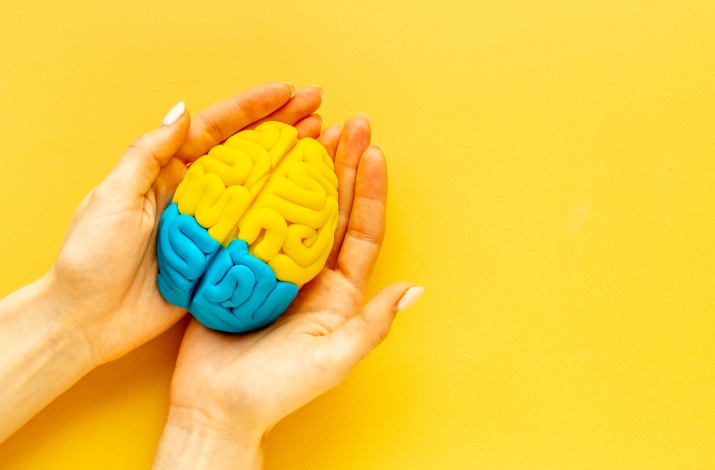Want to Improve Brain Health?

Want to improve your brain health?
In addition to a low-insulin diet, try exercise.
For years, studies have shown that exercise has a profound impact on brain health. Let’s take a look at how:
- Increased Blood Flow: Reduced cerebral blood flow is also shown to predict cognitive decline in healthy elderly individuals [1]. Evidence also suggests that older people without neurodegenerative disease who get lower blood flow to their brain have poorer spatial memory [2]. Physical activity increases blood flow to the brain, delivering more oxygen and nutrients that are essential for optimal brain function [3]. This enhanced circulation supports the growth and survival of brain cells.
- Neurogenesis: Exercise has been linked to the creation of new neurons (neurogenesis) in certain regions of the brain, particularly the hippocampus, which is involved in learning and memory. This process is crucial for maintaining cognitive function and mental flexibility as we age [4].
- Brain-Derived Neurotrophic Factor (BDNF): Exercise triggers the release of BDNF, a protein that promotes the growth, differentiation, and survival of neurons. BDNF also plays a crucial role in synaptic plasticity, which is essential for learning and memory [5]. One recent study showed that just six minutes of intense exercise was enough to activate BDNF four to five times more than prolonged but less vigorous activity [6].
- Neuroprotective Effects: Exercise has neuroprotective effects, which means it can help protect the brain from degenerative conditions like Alzheimer’s disease and other forms of dementia. It may help reduce the risk of cognitive decline and delay the onset of such conditions [7].
- Stress Reduction: Physical activity stimulates the release of endorphins, which are often referred to as “feel-good” hormones. These hormones can help reduce stress, anxiety, and depression, leading to overall improved mood and mental well-being [8].
- Improved Sleep: Regular workouts can lead to better sleep quality and duration [9]. Adequate sleep is crucial for brain health, as it supports memory consolidation and various cognitive processes [10].
- Reduced Inflammation: Chronic inflammation is associated with various neurological disorders. Studies show a link between physical activity and reduced inflammation throughout the body, including in the brain, potentially protecting against neurodegenerative diseases [11].
- Enhanced Brain Connectivity: Functional MRI studies have shown that exercise can lead to increased connectivity between different brain regions, promoting efficient communication and coordination between these areas [12].
- Aging and Cognitive Decline: Exercise is believed to play a role in slowing down age-related cognitive decline, including the risk of Alzheimer’s. Substantial evidence points to the role of exercise in helping individuals maintain cognitive function and preserve brain health as they age [13].
There’s no question that exercise is good for you. Rather than getting hung up on whether you should strength train or do yoga, swim or run, focus on finding activities that you can do three to five times a week. If you’re looking to maximize the impact of exercise on your brain health, the best exercise is the one you’re going to do.
References
- https://pubmed.ncbi.nlm.nih.gov/25291458
- https://pubmed.ncbi.nlm.nih.gov/20026320/
- https://www.ncbi.nlm.nih.gov/pmc/articles/PMC7308509/
- https://www.ncbi.nlm.nih.gov/pmc/articles/PMC6296262/
- https://www.ncbi.nlm.nih.gov/pmc/articles/PMC4697050/
- https://pubmed.ncbi.nlm.nih.gov/36631068/
- https://www.ncbi.nlm.nih.gov/pmc/articles/PMC7460620/
- https://www.ncbi.nlm.nih.gov/pmc/articles/PMC8758158/#:~:text=Women%20who%20used%20exercise%20as,as%20a%20stress%20management%20technique.
- https://www.ncbi.nlm.nih.gov/pmc/articles/PMC8215288/#:~:text=The%20overall%20analysis%20on%20subjective,3.32%20to%20%E2%88%921.78)%20scores.q
- https://newsinhealth.nih.gov/2013/04/sleep-it#:~:text=“During%20a%20night%20of%20sleep,the%20deep%20stages%20of%20sleep.
- https://www.ncbi.nlm.nih.gov/pmc/articles/PMC3629815/
- https://www.ncbi.nlm.nih.gov/pmc/articles/PMC6296269/#:~:text=A%20functional%20MRI%20study%20suggested,frontal%20executive%20network%20%5B59%5D.
- https://pubmed.ncbi.nlm.nih.gov/27636853/
This article is for informational and educational purposes only. It is not, nor is it intended to be substitute for professional medical advice, diagnosis, or treatment and should never be relied upon for specific medical advice.



















